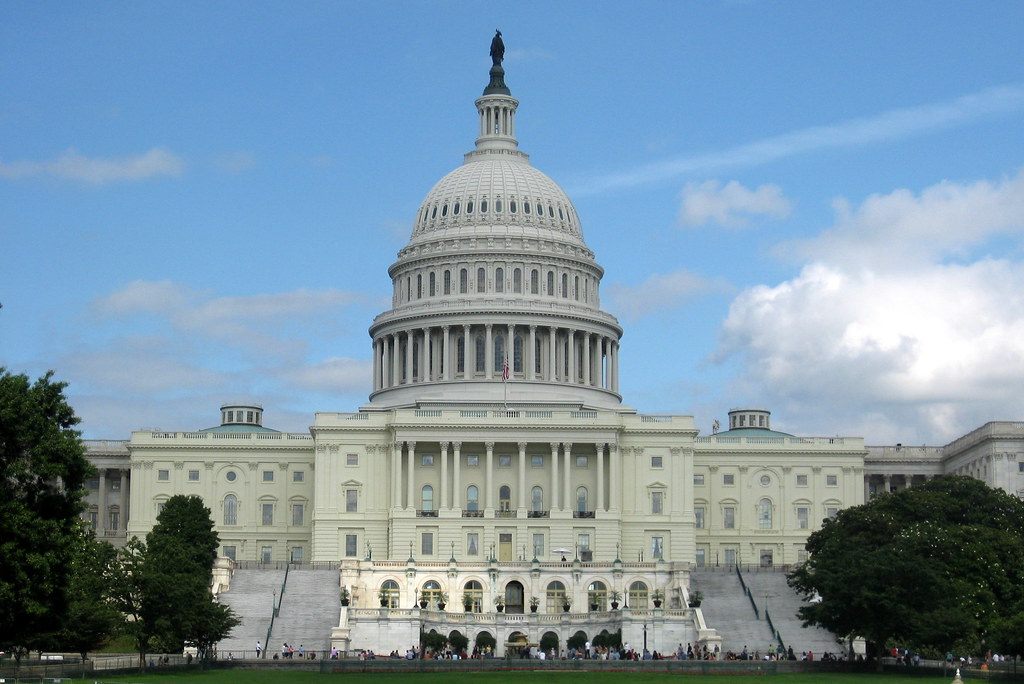Search Results for

December 06, 2022
Buttigieg Faced Rare Cable TV Grilling Over Position On Sick Leave For Rail Workers
Secretary of Transportation and usual media darling Pete Buttigieg faced a rare grilling from center-left media outlets at the end of last week.

November 24, 2022 | The American Prospect
Quants, Carbon, And Climate Change
Both EA and popularism appeal to a desire for mathematical rigor and objective calculation, whether it’s calculating lives-saved-per-dollar or playing probabilities in politics.Both EA and popularism appeal to a desire for mathematical rigor and objective calculation, whether it’s calculating lives-saved-per-dollar or playing probabilities in politics.

November 18, 2022
Infrastructure Coordinator Not Coordinating With Public Transit Agency
Last November, President Biden signed the Infrastructure, Investment and Jobs Act, better known as the Bipartisan Infrastructure Law. The bill provides $1.2 trillion for infrastructure renovations nationwide, with $91 billion earmarked for various public transportation programs. At the time, Biden announced Mitch Landrieu would be the White House’s Senior Advisor and Infrastructure Coordinator in charge of implementing the landmark legislation, more colloquially known as the “Infrastructure Czar.” Landrieu now oversees a $1.2 trillion dollar bill, so he must be in constant communication with the administrators of key agencies to ensure it’s money well spent … right?

November 01, 2022
Gina Raimondo Should (Still) Fire NHC Acting Director Jamie Rhome
Last month, Jamie Rhome, the current Acting Director of the National Hurricane Center (NHC), effectively rejected settled climate science while discussing the then-potential severity and impact of Hurricane Ian. In that interview, Rhome said he would “caution against” linking the intensity of Hurricane Ian to climate change. To be clear, there is no question or ambiguity on this link. The worsening severity of extreme weather events as a result of climate change is something that has been firmly established, for years, by other federal agencies – like NASA – and also by international research bodies – like the National Academies – which makes Rhome’s refusal to do so all the more baffling.

October 31, 2022
Blog Post Congressional OversightDepartment of Homeland SecurityDepartment of JusticeEthics in Government
A Crisis Of (Un)Accountability: Amidst Profound Political Cruelty, Ethics Matter More Than Ever
The news was flooded in September with images, reports, and increasingly abhorrent context for Florida Governor Ron DeSantis’ trafficking of migrants from Texas to Martha’s Vineyard as a political stunt. DeSantis’ actions, and those of his aides, are of course potentially illegal, as was asserted by a Texas sheriff who opened a criminal investigation into the spectacle. This latest sadistic political posturing came at the cost of real people fleeing real persecution, but there is also a crucial piece of this awful puzzle that hasn’t been fully explored. Why did Department of Homeland Security (DHS) agents, funded by federal dollars, allegedly forge documents for migrants knowing (even if the migrants themselves didn’t) that their flights were not destined for the locales DHS agents made their immigration proceedings beholden to?

October 17, 2022
Independent Agency Update Summer 2022
Personnel is policy, which means that the people who make up our federal institutions matter. Which means that the partisan Republican assault on the staffing up of the federal agencies that regulate so much of the public’s everyday life also matters greatly. Unfortunately, as we have highlighted for months and will continue to highlight for as long as it persists, the federal government is being gutted from the inside out by a blockade of overdue qualified leadership.
October 14, 2022
Hannah Story Brown Timi Iwayemi Fatou Ndiaye
Blog Post Executive BranchGovernment CapacityIndependent Agencies
Omnibus Awareness Month in Review
If Congress regularly met its own deadlines, then October—the first month of the fiscal year—would also be the first month when federal agencies could implement their new and improved budgets. Unfortunately, the modern Congress regularly fails to pass an omnibus spending package for the next fiscal year, which bundles several appropriations bills for different parts of the federal government into one whole-of-government budget, by the end of the previous fiscal year. This autumn is no different.

September 09, 2022
The CEA's New Antitrust Guy: Should We Be Worried?
According to Marshall Steinbaum, Assistant Professor of Economics at the University of Utah, “This appointment signals that the CEA isn’t on board with the administration’s anti-monopoly agenda.” And that could be dangerous.

September 07, 2022
Blog Post Confirmations CrisisCongressional OversightGovernanceGovernment CapacityIndependent Agencies
The Confirmations Crisis
As we at the Revolving Door Project have long argued, the crisis surrounding the confirmations (or rather, the lack thereof) of Biden’s highly qualified nominees remains an issue of critical importance.

August 17, 2022
Corrupt Cuffari and our Continued Case for De-Trumpification
Donald Trump is not the only person who has been keeping evidence from law enforcement. The news cycle has been rocked for weeks by revelations that Secret Service agents deleted text messages, wiped their phones, and otherwise disappeared evidence related to their activities during Donald Trump’s attempted coup. These revelations are horrifying, as are the profound dangers such actions pose to our collective safety. Of course, it’s not just the threat to our national, personal, and political security that should inspire terror, but also how these behaviors fundamentally challenge the most effective tool that the public has to ensure accountability from its government: transparency.

August 05, 2022
Changes To DeJoy’s Fleet Plan Are Welcome, But Not Enough
USPS’ next-gen vehicles should be 100% electric and union-made. And DeJoy should be out the door.

July 08, 2022
The Extraordinary (Time) Costs of Senate Republican Nomination Blockades
There are at least 366 presidentially appointed positions requiring Senate confirmation that are still awaiting a nominee or have nominees already going through the long, arduous, confirmation process. However, a process that has long been notorious for how time-consuming and antiquated it is, is intentionally being made even more difficult by nefarious Republican bad actors that are weaponizing Senate rules against supremely qualified nominees specifically to hinder the health of the federal government and to devastate President Biden’s agenda.

July 08, 2022
Top SEC Enforcement Officials Take A Swing Through The Revolving Door
In another notable swing through the revolving door between government and BigLaw, two top Securities and Exchange Commission enforcement officials recently joined Willkie Farr & Gallagher LLP as partners. They join former SEC general counsel Robert Stebbins and former CFTC commissioner Christopher Giancarlo as government alumni at the firm.

July 06, 2022
The State of Independent Agency Nominations - Update for Spring 2022
The Revolving Door Project has warned continuously of the extraordinary consequences inherent to failing to staff the federal government. Now, more than a year and a half into Biden’s presidency, staffing failures across the government have borne many of the bitter fruits which we warned of, and continue to undermine the Biden administration’s agenda.

June 29, 2022
Biden Must Take On Refineries To Lower Gas Prices
Rising gas prices may not be a problem of the Biden administration’s making, but they are a problem it cannot afford to ignore. People across the country are feeling their effects, with some groups like gig workers and those in the trucking industry – which has seen an increase in layoffs as gas prices have risen – suffering more acutely. In the face of these difficult conditions, it is essential that the Biden administration take decisive action to ease the pain people are feeling right now and, in the medium-term, address the structural factors that created this crisis.
